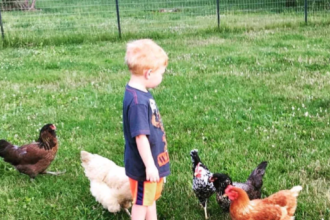Dogs bring boundless joy and companionship into our lives, but their quality of life can diminish when they suffer from injuries, chronic conditions, or post-surgical complications. Every dog deserves the best possible care to regain mobility, manage pain, and enjoy a happy, active life. Specialist dog rehabilitation RehabVet services provide personalized treatment plans tailored to each dog’s unique needs. Through advanced therapies and compassionate care, dogs can recover, thrive, and enjoy life to the fullest.
The Importance of Canine Rehabilitation
Just like humans, dogs benefit from rehabilitation to heal properly after injuries or surgeries. Whether recovering from orthopedic procedures, neurological disorders, arthritis, or obesity-related issues, rehabilitation plays a crucial role in restoring strength and function. A structured rehabilitation program can speed up healing, reduce pain, and prevent future complications.
Specialist rehabilitation treatments focus on improving movement, reducing discomfort, and enhancing overall well-being. Experts in canine rehabilitation work closely with veterinarians to develop customized therapy plans tailored to each dog’s condition and lifestyle.
Cutting-Edge Rehabilitation Techniques
Canine rehabilitation utilizes a range of advanced techniques to provide the most effective care. Each method is selected based on the individual dog’s diagnosis and specific needs. Some of the most successful therapies include:
Hydrotherapy
Water-based therapy is a cornerstone of canine rehabilitation. Underwater treadmills and hydrotherapy pools allow dogs to exercise with minimal stress on their joints. The buoyancy of water reduces weight-bearing pressure, making it ideal for dogs recovering from surgery, arthritis, or mobility issues. Hydrotherapy also helps improve cardiovascular fitness, muscle strength, and coordination.
Physiotherapy and Therapeutic Exercises
Targeted exercises play a key role in rebuilding muscle strength, improving balance, and enhancing flexibility. Specialists design personalized exercise programs that may include balance boards, resistance bands, and controlled movement drills. These exercises help dogs regain strength, prevent muscle atrophy, and improve coordination, ensuring a smoother return to their normal activities.
Laser Therapy
Low-level laser therapy (LLLT) is a non-invasive treatment that promotes tissue healing and reduces pain and inflammation. It is particularly effective for conditions such as arthritis, ligament injuries, and post-surgical recovery. By stimulating cellular activity, laser therapy accelerates healing and enhances overall comfort.
Massage and Manual Therapy
Therapeutic massage and manual therapy techniques help relieve muscle tension, improve circulation, and enhance relaxation. These hands-on treatments can alleviate pain caused by injuries, chronic conditions, or stress, providing both physical and emotional relief for dogs undergoing rehabilitation.
Acupuncture
Acupuncture is a time-tested therapy that has proven effective in managing pain and supporting recovery. By stimulating specific pressure points, acupuncture promotes natural healing, reduces inflammation, and enhances nerve function. It is particularly beneficial for dogs with chronic pain, mobility issues, or neurological disorders.
Personalized Care for Every Dog
No two dogs are the same, which is why a personalized approach to rehabilitation is essential. Each dog’s condition, lifestyle, and specific needs must be carefully assessed before designing a treatment plan. The goal is not just to treat symptoms but to address the root cause of mobility issues, ensuring long-term improvement.
Rehabilitation journeys begin with a comprehensive evaluation, where specialists assess the dog’s range of motion, muscle condition, pain levels, and overall health. Based on these findings, a tailored rehabilitation program is crafted and evolves as the dog progresses. Regular assessments and adjustments ensure that treatments remain effective and aligned with recovery goals.
Supporting Pet Owners Through the Journey
Rehabilitation is a collaborative process, and pet owners play a vital role in their dog’s recovery. Educating and empowering owners with the knowledge and tools needed to support their pets at home is a crucial part of the process. Guidance on therapeutic exercises, lifestyle modifications, and home care techniques helps complement in-clinic treatments.
A compassionate support team is essential for answering questions, addressing concerns, and offering encouragement throughout rehabilitation. Watching a beloved pet struggle with mobility issues can be challenging, so expert guidance and emotional support ensure that owners feel confident in their dog’s recovery journey.
Transforming Lives, One Dog at a Time
Specialized rehabilitation services have helped countless dogs regain their ability to move pain-free and enjoy life again. From senior dogs rediscovering their mobility to athletic dogs recovering from injuries, rehabilitation makes a tangible difference in the lives of pets and their families.
If your furry friend is struggling with mobility issues, recovering from surgery, or dealing with chronic pain, expert rehabilitation can be the key to a healthier, happier life. With the right combination of advanced treatments, dedicated care, and ongoing support, dogs can regain their strength, vitality, and ability to live life to the fullest.













